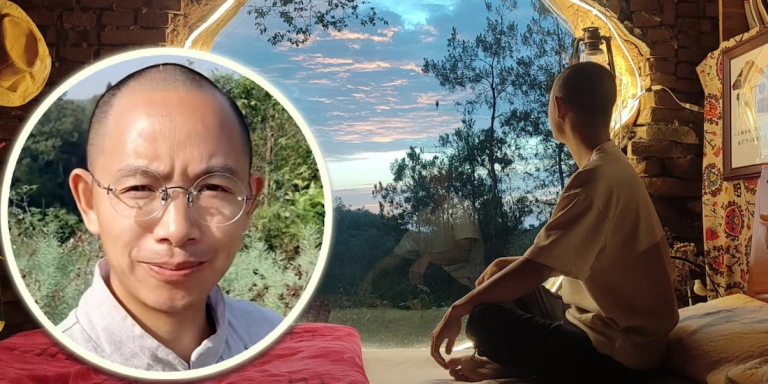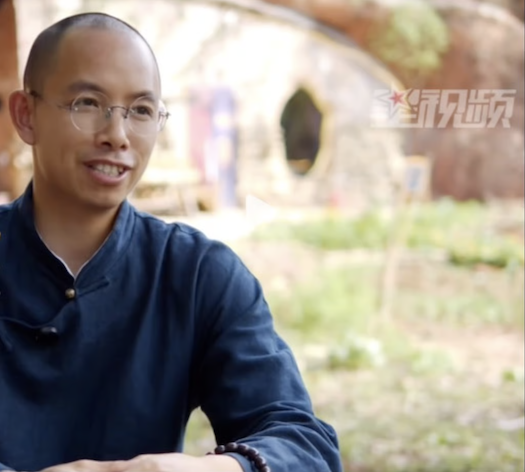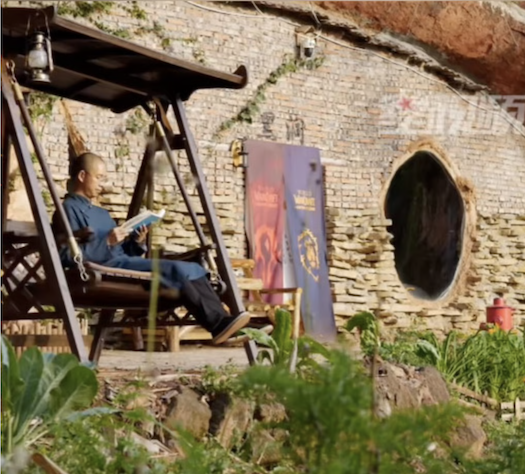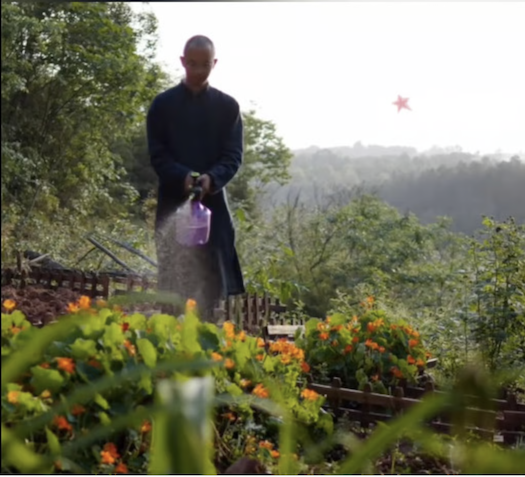
New York, N.Y.— In southwestern China’s mountainous Sichuan province, a former ride-hailing driver has become an unlikely philosopher of disengagement after four years of cave-dwelling solitude, challenging fundamental assumptions about work, debt, and relationships in modern society.

Radical Withdrawal From Societal Expectations
Min Hengcai, 35, abandoned his urban existence in late 2021 despite earning approximately $1,400 monthly driving for a ride-hailing service.
Burdened by crushing $42,000 debt to banks and lending companies, and disillusioned by ten-hour workdays dedicated solely to repayment, he concluded conventional life was “meaningless.”
His disillusionment deepened when relatives sold properties that could have reduced his financial obligations.
Min executed an unconventional solution: trading his ancestral land for a smaller plot featuring a 50-square-meter cave, which he renovated into habitable quarters using $6,000 of his remaining savings.
Christening his new home “Black Hole,” Min explains the name reflects cosmic perspective—a reminder of human insignificance in the universe.
Structured Simplicity: A Day in Cave Life
Contrary to assumptions of chaotic isolation, Min maintains disciplined rhythms in his cavernous retreat. Rising at 8 a.m., he dedicates daylight hours to reading, walking through the surrounding landscape, and tending vegetables he cultivates for sustenance 512. His expenses are pared to absolute essentials—primarily items he cannot grow or forage. Nights conclude by 10 p.m., a stark contrast to his former urban existence governed by financial pressures and exhaustive work shifts.
This ascetic routine, Min insists, fulfills dreams nurtured during his city struggles: “This is the life he dreamed of during his grueling workdays in the city.” His lifestyle exemplifies China’s tang ping movement (lying flat), a quiet rebellion against relentless productivity demands and societal expectations.

Marriage and Money: A Scathing Critique
Min’s rejection extends beyond career culture to fundamental social institutions. He dismisses marriage as a “waste of time and money,” arguing statistically against the pursuit of romantic fulfillment.
“The probability of finding true love is very low,” he told Sichuan Television. “Why would I want to work hard for something so rare?”
This perspective, amplified through media coverage, has ignited fierce online debate positioning him as either a visionary critic or societal dropout.
While some celebrate his principled stand against materialism, others condemn his debt abandonment as irresponsible escapism.
Psychologist Dr. Li Mei (unaffiliated with Min’s story) observes: “Such extreme rejections often stem from systemic burnout. They hold up mirrors to societal pressures, whether intentionally or not.”
Digital Hermit: The Social Media Paradox
Ironically, Min’s pursuit of isolation has garnered significant online attention. Documenting his cave life through livestreams, he has attracted over 40,000 followers—an audience complicating his renunciation of modern connectivity.
Critics question the authenticity of his seclusion given this digital engagement, suggesting performance undermines his anti-materialist message. Supporters counter that modest platform earnings facilitate his self-sufficiency without re-entering conventional economies.
This tension highlights contemporary struggles to define authenticity in an era of curated identities. Min’s approach finds historical parallels in figures like Daniel Suelo, the American who lived money-free in Utah caves for 16 years, and Italian Mauro Morandi, who occupied a Mediterranean island alone for three decades. Like Min, both became reluctant celebrities despite seeking obscurity.
“The ‘Black Hole’ isn’t about darkness,” Min reflected during a rare interview. “It’s about perspective. We’re specks in the universe, yet we torture ourselves over debts and status. Here, I breathe without chains.”

Cultural Echoes and Lasting QuestionsBeyond viral fascination, Min’s story resonates with global anxieties about work-life balance and sustainable living.
Academics note parallels between China’s tang ping and Western movements like FIRE (Financial Independence, Retire Early) and minimalism, all seeking alternatives to consumption-driven identities.
Dr. Chen Wei, sociology professor at Peking University, suggests: “Min embodies a generational critique. When traditional paths to stability collapse under debt or disillusionment, withdrawal becomes a logical—if radical—choice. His cave is less a home than a statement.”
As urbanization accelerates globally, Min’s rejection poses uncomfortable questions: What do societies owe workers crushed by debt? When does self-sufficiency become societal abandonment? And can true disconnection exist in the digital age?
For now, Min tends his vegetables, shares moments online, and inhabits his “Black Hole”—a living provocation in stone.
#HermitLife #RejectModernity #CaveDweller #TangPing #SimpleLiving #Minimalism
#DebtFreeLife #SocietalRejection #AlternativeLiving #SichuanHermit
Tags: Modern hermits, Tang Ping movement, anti-capitalism, simple living, societal pressure,
debt crisis, Min Hengcai, China work culture, alternative lifestyles, solitude